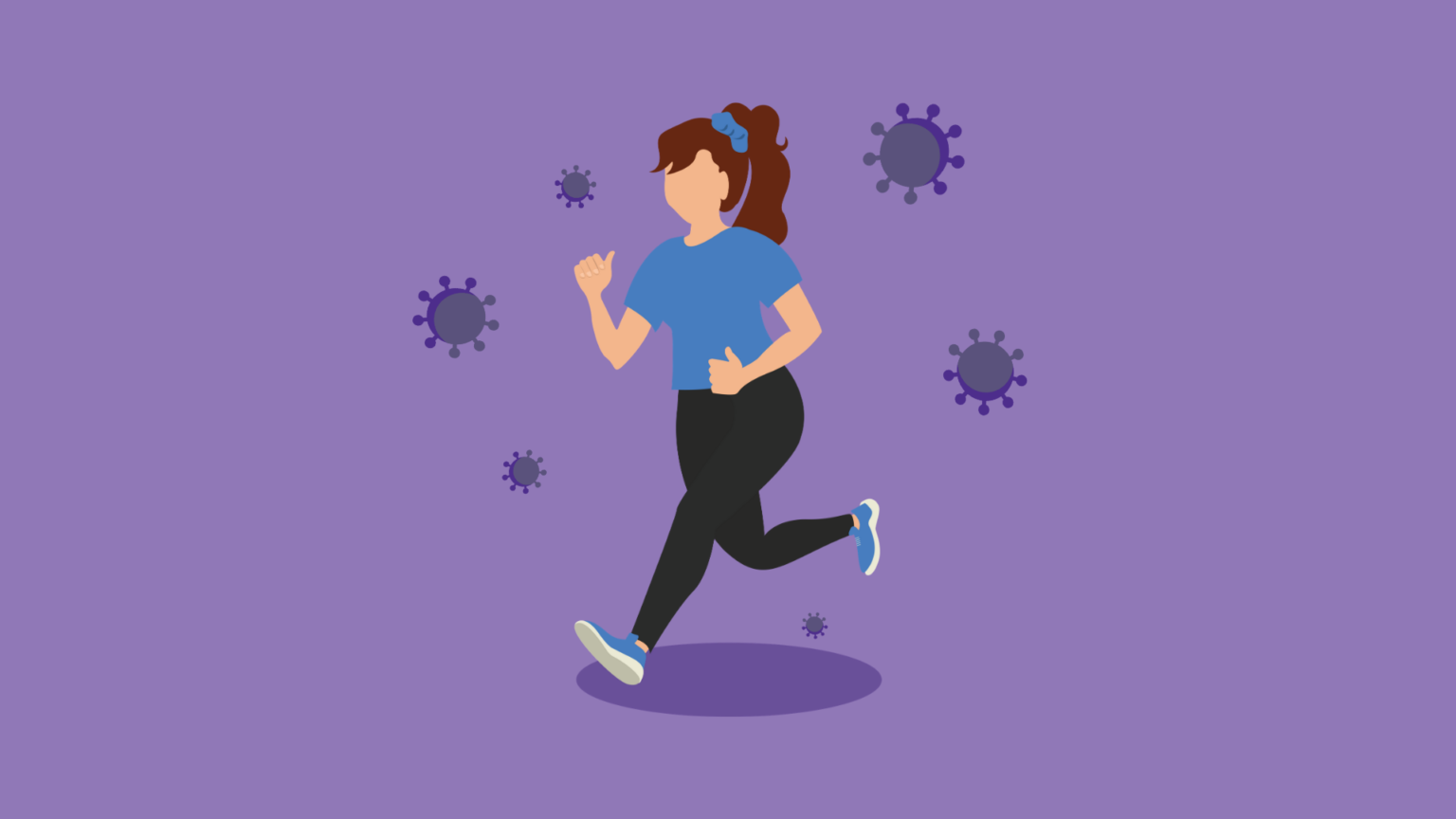

Exercise, social distancing, COVID-19, and a pandemic – oh my! Now more than ever, it’s important to maintain your physical and mental well-being during the pandemic. How can this be done, you ask? Luckily, it’s not as hard as you may think!
How to Exercise At Home FAQ
To start, let’s answer a few commonly asked questions:
Why is it important for me to be active?
According to the U.S. Department of Health and Human Services, physical activity can provide immediate benefits. Physical activity can help to boost your mood, reduce stress, improve sleep, and sharpen your focus — benefits that can be especially important during stressful times. Physical activity can also help you live a longer, healthier life by reducing the risk of many common chronic diseases, like type 2 diabetes and heart disease.
How much activity does everyone need?
Children aged 3 to 5 years need physical activity throughout the day, every day for growth and development. Children and adolescents aged 6 to 17 years need at least 60 minutes of moderate-to-vigorous intensity physical activity daily. Adults need 150 minutes a week of moderate-intensity activity such as brisk walking for health benefits. Regardless of your age, some physical activity is better than none.
Is it safe for me to be active outside?
Before deciding about whether to be active outside, be sure to check the latest guidance from your local health department and community or state leaders. In most places across the United States, residents can go for a walk or run if they practice social distancing and good hygiene.
Walking, bicycling, hiking and jogging allow you to get some fresh air without coming into close contact with others. It is important to note that because of the aerodynamic effects of movement, additional social distancing precautions should be taken. In addition, people should avoid walking or running directly behind the leading person and make sure to keep a 6-foot distance in a staggered or side-by-side arrangement.
Don’t forget that physical activity does not have to be a gym-style workout! Everyday activities such as walking, gardening, and cleaning can improve fitness and overall health.
Do I have to wear a mask while exercising?
If you’re exercising in an area with a lot of other people around, and are unable to practice social distancing appropriately, it’s recommended that you (and your family members) wear a mask or face covering. Be sure to wear a mask or face covering that can be washed, especially during allergy season.
If you choose to exercise at a gym or indoor facility, your mask should be worn at all times and washed immediately upon returning home. However, the gym and indoor facilities can be considered “high-risk” zones, so it’s best to consult your doctor before making a final decision.
The Big Four
If you’re not sure what activities might be best for you, try to remember the “big four.”
1. Endurance exercises – support your heart and lungs
- Walking or jogging
- Yard work or gardening
- High knees or jumping jacks

2. Strength exercises – maintain your muscles
- Push-ups or planks
- Squats or lunges
- Crunches or sit-ups

3. Balance exercises – maintain your stability
- Single leg balance – lift one foot off the floor and stand to the count of 5 or 10. If you need, use a chair or wall for stability.
- Mountain standing – put both feet flat on the floor, hands at your side, posture upright. Focus on the pose and stand solid while breathing deeply for 10 breaths.
- Standing marches – stand in place and march slowly, using a chair or wall for stability if needed.

4. Flexibility exercises – move more freely
- Ankle and wrist rolls
- Neck stretch
- Touch your toes

In Conclusion
Remember to always check with your doctor or physical therapist before starting a new exercise, especially if you have physical limitations or recently had surgery.
Above all, movement is key during these stressful times! So, try to think out of the box and get as much movement in your life as you can!
more recommended stories
 Pediatric Crohn’s Disease Microbial Signature Identified
Pediatric Crohn’s Disease Microbial Signature IdentifiedKey Points at a Glance NYU.
 High-Fat Diets Cause Damage to Metabolic Health
High-Fat Diets Cause Damage to Metabolic HealthKey Points Takeaways High-fat and ketogenic.
 Can Too Many Antioxidants Harm Future Offspring?
Can Too Many Antioxidants Harm Future Offspring?Key Takeaways High-dose antioxidant supplementation in.
 Human Antibody Drug Response Prediction Gets an Upgrade
Human Antibody Drug Response Prediction Gets an UpgradeKey Takeaways A new humanized antibody.
 Dietary Melatonin Linked to Depression Risk: New Study
Dietary Melatonin Linked to Depression Risk: New StudyKey Summary Cross-sectional analysis of 8,320.
 Type 2 Diabetes Risk Identified by Blood Metabolites
Type 2 Diabetes Risk Identified by Blood MetabolitesKey Takeaways (Quick Summary) Researchers identified.
 Microglia Neuroinflammation in Binge Drinking
Microglia Neuroinflammation in Binge DrinkingKey Takeaways (Quick Summary for HCPs).
 Durvalumab in Small Cell Lung Cancer: Survival vs Cost
Durvalumab in Small Cell Lung Cancer: Survival vs CostKey Points at a Glance Durvalumab.
 Rising Chagas Parasite Detected in Borderland Kissing Bugs
Rising Chagas Parasite Detected in Borderland Kissing BugsKey Takeaways (At a Glance) Infection.
 Can Ketogenic Diets Help PCOS? Meta-Analysis Insights
Can Ketogenic Diets Help PCOS? Meta-Analysis InsightsKey Takeaways (Quick Summary) A Clinical.

Leave a Comment